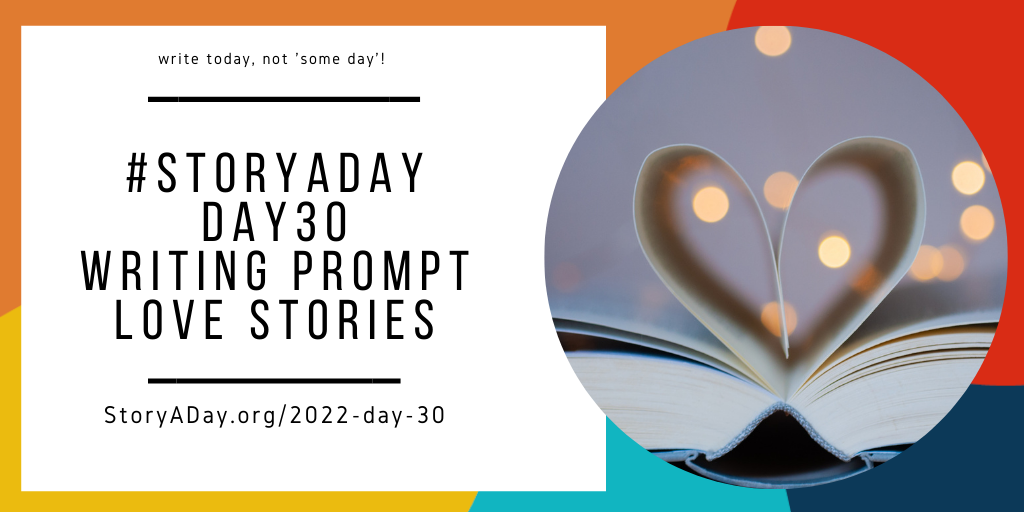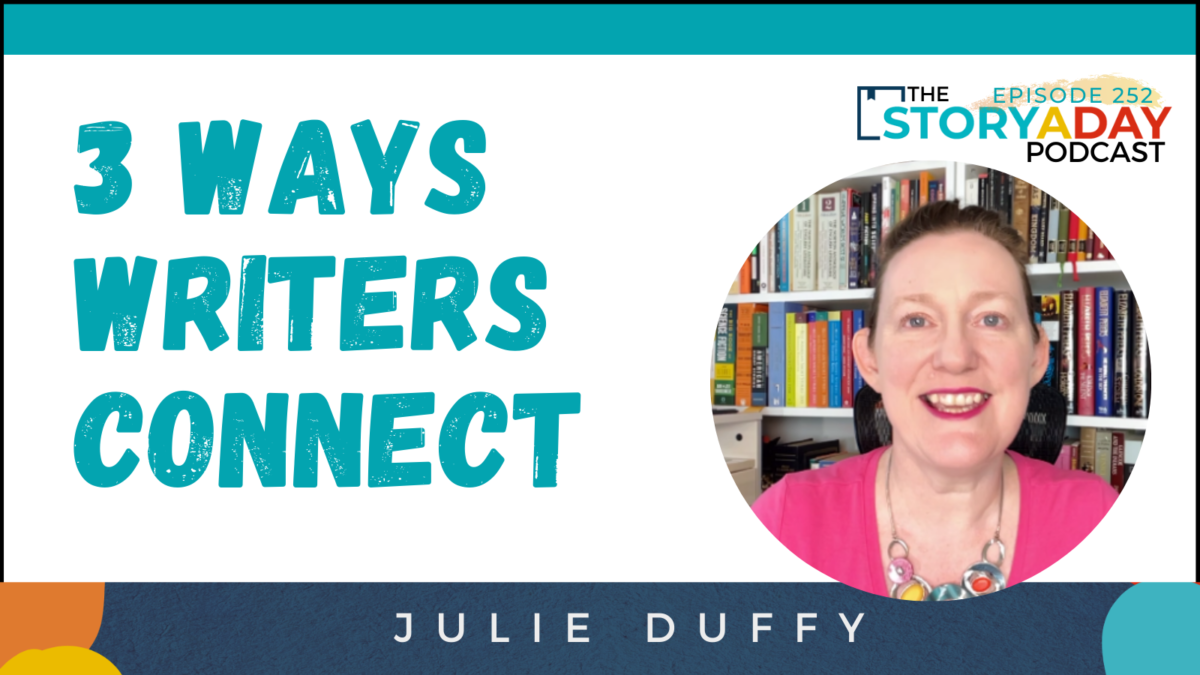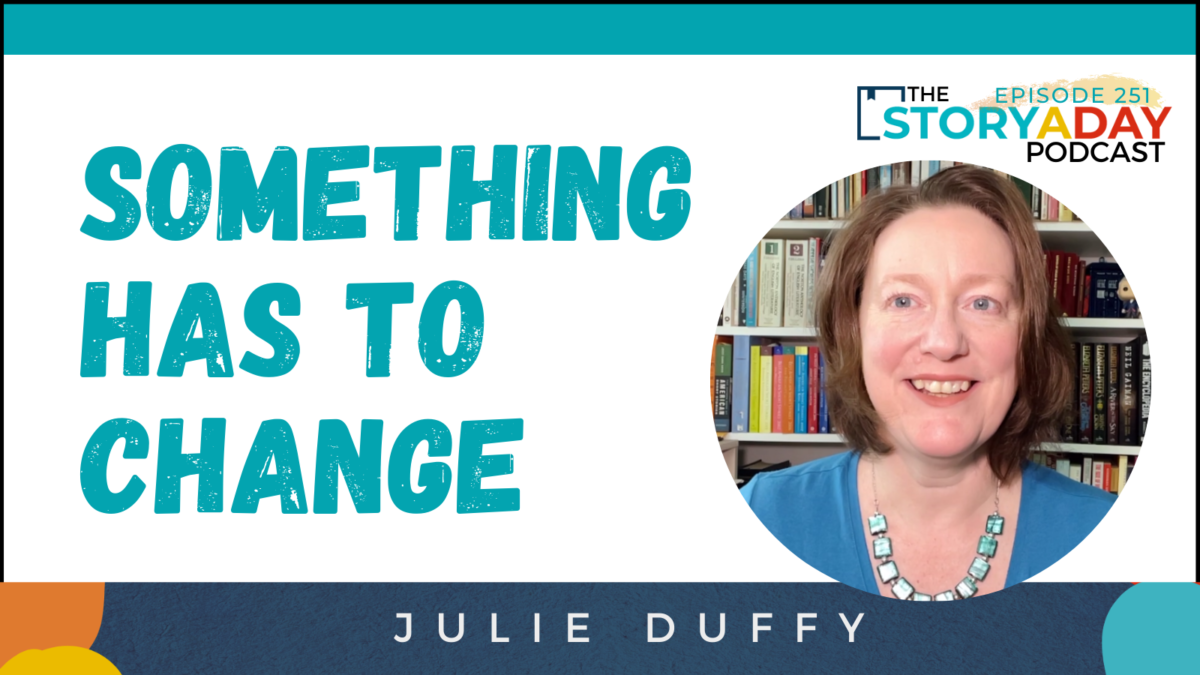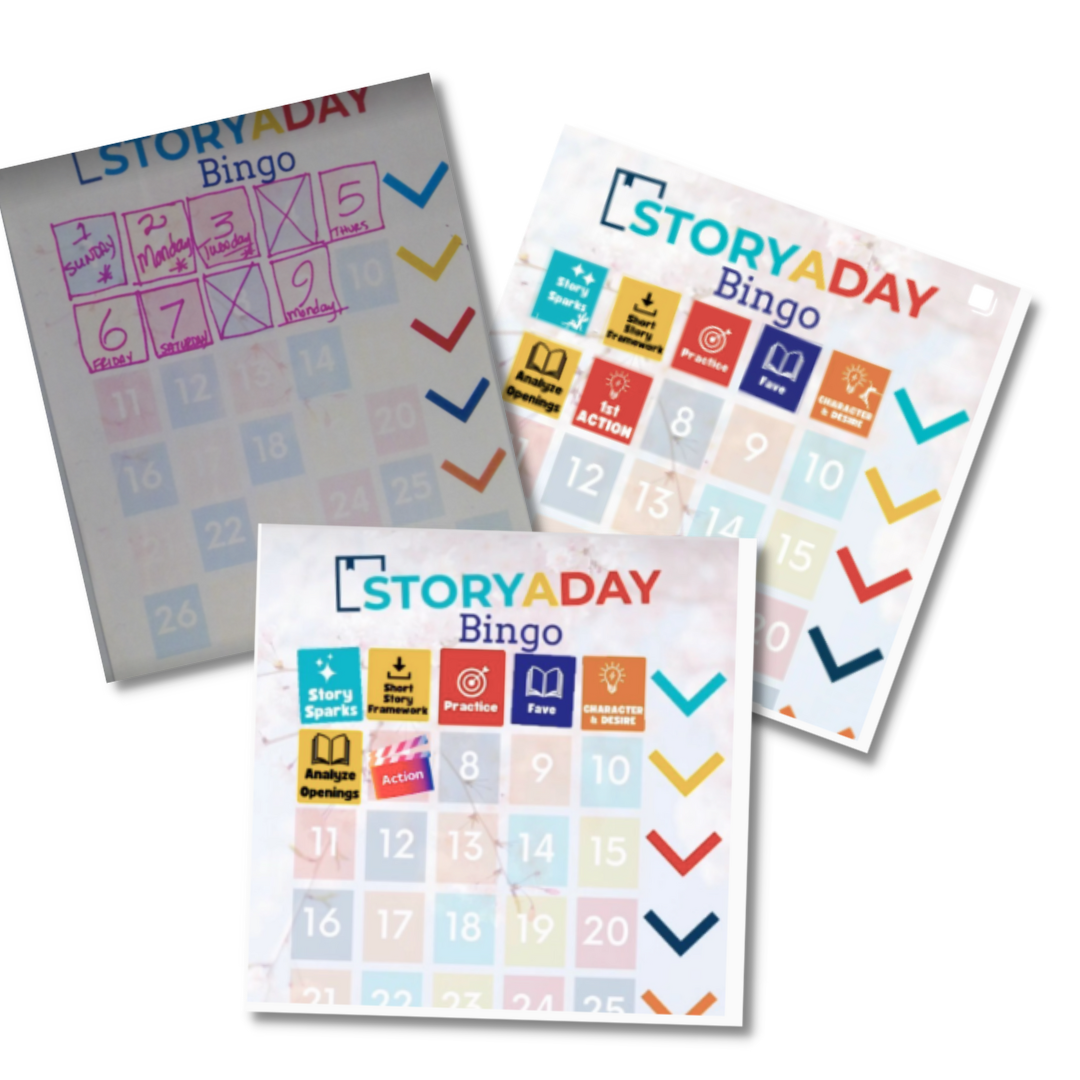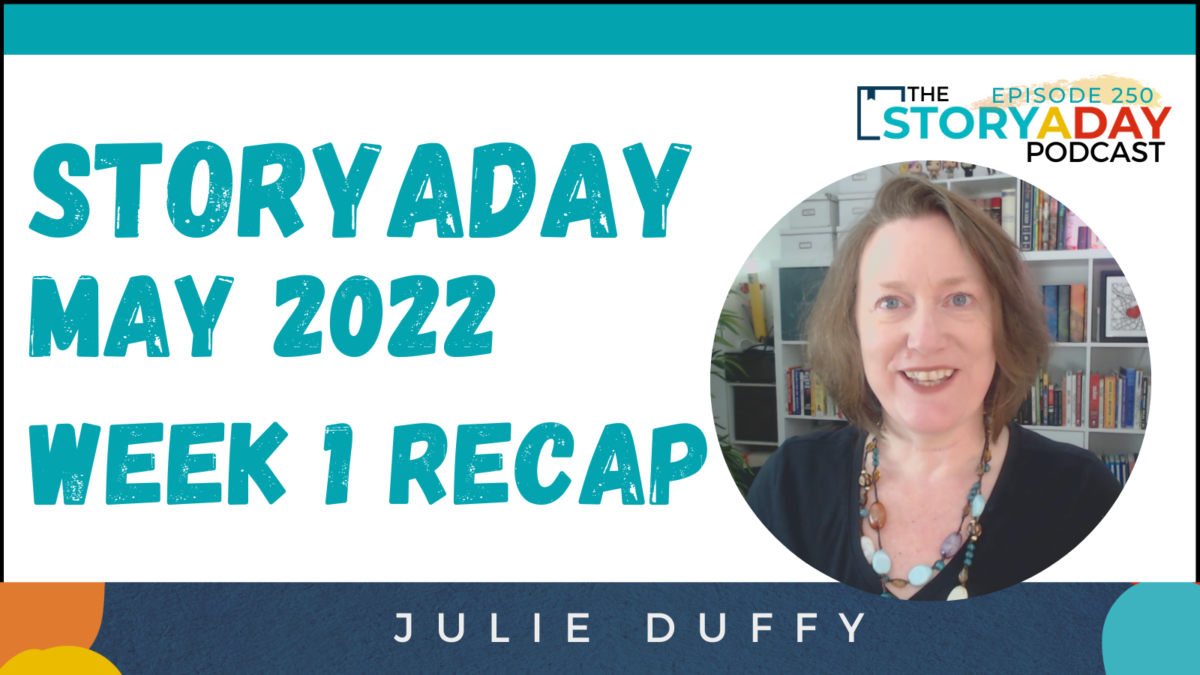The Prompt
Write A Love Story
There are many types of love, and it manifests in as many ways as there are humans in the world (and imagined humans in our stories).
You can write a romance if you must, but I’m going to encourage you to write a story that shows us an act of love more unexpected than that.
It might be:
- the love between a grandparent and a grandchild
- A love that shows up in actions, not words
- A friendship that picks up after years apart
Remember to show us what’s happening in your story. Paint me a picture. Make me laugh, make me cry, make me feeeeeel the lurrrve.
Julie Duffy
Julie Duffy is a hopeless romantic in all senses of the world. A cock-eyed optimist, and a writer who loves stories that paint the world we want, not just the one we have. Invite her onto your podcast to talk about how stories change hearts and save the world.

